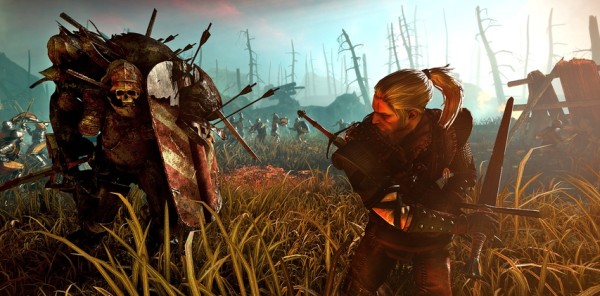
CDP have spent the months since the release of The Witcher 2: Assassins Of Kings putting yet more work into the title. This all comes to a head with the release of the 2.0 patch on the 29th. This enormo-patch adds a load of content (even – gasp – a tutorial!).
We spoke to CDP’s development director Adam Badowski to find out what the Polish development studio had been up to, and how they’d reacted to the feedback on their game. We also asked whether it would take four years to get to sequel, and were told that the team are still considering whether to make a full-blown expansion…
RPS: What was the mood in the studio like once The Witcher 2 had shipped? Was it relief at having shipped, or a feeling that there was more work to do? A mix of both?
I’d say it was a mix of both. We were very pleased with the final shape of the game, but at the same time we knew there were things that could be improved. So, even before the release, we decided that we would continue working hard to make the game even better after release. Once the game was released, we slowed down, but not by much. Instead of working nearly 24/7, we went to working, say, 12/6. That’s still quite a lot. Of course, some team members took time off after working extremely hard for many months, but most of the team continued to work. That’s why we were able to release several patches so soon after the release and in relatively quick succession – almost one after the other, in fact. And that is why we will soon be releasing version 2.0, which is very big update of the game – and here we are just 4 months after release!

Actually, this crazy pace of ours has had one rather negative side effect. Namely, some people think the game was really buggy or unfinished. They got this impression when they saw the number of improvements we implemented after release. Some “game industry experts” even suggested that we should produce fewer patches, or at least refrain from mentioning all the corrections and changes in the readme files, as this creates the impression that the game was unfinished. That’s just the wrong way of thinking to me, and it goes against our company values. Hiding facts? Taking a manipulative stance towards our customers? Come on – that’s pure bullshit!
Of course, the game wasn’t perfect. It had its strengths and weaknesses. Yet even with the version as initially released, I’m confident in saying that we achieved a level of quality well above the average we see coming from the games industry these days. I think it’s important that we reacted so quickly to all the comments. There were things that needed improvement, and I’d say that 80% of them have already been, or will be improved with version 2.0. So, we’re getting closer and closer to a really super–polished gaming experience, and that’s not a common beast in our industry.

There was one thing that proved a huge thorn in our side at release. It was the Internet architecture put in place to support online registration. The external company that provided all that proved to be insufficiently prepared. We had to react very quickly – servers were replaced and the first patch was released. We severed relations with the third–party provider and adopted a different solution, relying more heavily on internal resources. Also, we simplified the installation process by removing DRM with our first patch (the fallout from this has included being sued by our publisher in French court, but I remain confident that we made the right decision).
To summarize, we’re happy with our success. The original Witcher retains a Metacritic average of around 81, The Witcher 2 has a score of 87. Of course, it would be nice to have even higher scores, but it’s also good to have room for improvement. And constantly raising the bar is one of our goals.
On another note, we’re still learning one very important thing: Producing better games is not just about knowing what constitutes a better game. It’s also about creating a business set up which makes that possible, a set up in which, for example, quarterly or annual financial results are not a key factor in determining a release date. None of that is easy, because under current standard set ups, developers have little to say. Publishers remain masters of the situation, and their decisions are quite often driven by corporate priorities that may actually be harmful to the development process. That’s why we would rather rely on our own financial resources, and why our model for cooperating with publishers has been slowly evolving from a publishing to a distribution arrangement under which we retain sole responsibility for key decisions. I’m pretty sure this will help us make even better games in the future and avoid being sued for decisions that favor our customers (two of the three charges made by our publisher relate to this: removal of DRM and of obligatory IP geolocation on GOG.com).
RPS: To what extent were your plans for updates following release changed by the feedback you got from the launch?
Badowski: Basically, we focused on two areas. The first related to things that we knew for certain needed improvement – and we worked on those without waiting for any feedback. Then there were the unexpected things, things that surprised us – these mostly related to specific hardware and software setups. We realized that the nearly one hundred different rigs on which three different teams tested the title prior to release was simply not enough. The sheer variety of hardware and Windows configurations in users’ hands proved quite a challenge for our freshly formed tech support team. By the way, this team worked 24/7 on three shifts just after release – necessitated not only by the number of incoming requests, but also by time differences across the globe.

RPS: Can you tell us exactly what the 2.0 update includes and why you chose to focus on these issues?
Badowski: We approached version 2.0 similarly to how we approached the Enhanced Edition of the first Witcher – we wanted to correct things gamers didn’t like and add features we had wanted to include in the game, but failed to add prior to its release due to time constraints. The main difference between TW1 and TW2 in this respect is that we wanted to act quickly to provide players with a superbly polished edition soon after release. The Enhanced Edition of the first Witcher came one year after initial publication. It took us only four months to produce version 2.0 of TW2. But the size and scale of the update is comparable. It was our own technology, the RED Engine, which chiefly made this possible. It is far more flexible and user–friendly for developers than the old tech, as well as being much more reliable. Our team is also far more experienced this time around – that’s important and it really paid off.
We focused on further polishing the game to produce an extremely smooth gameplay experience. Yet I wouldn’t call this the key aspect, as we have already released quite a few patches that introduce many improvements. Still, there are more than forty new improvements on the way.
We were really intent on correcting one element of the game that had received a lot of criticism – namely, the insufficient tutorial and steep learning curve at the beginning of the game. To alleviate these problems, we have created a new, extensive tutorial component that takes the form of an additional adventure set in a completely new location – a village in the kingdom of Kaedwen. This module explains everything step by step, from the basics to the most advanced elements. I don’t think we’ll get any more complaints about the learning curve, at least from players who complete the new tutorial. Most of the problems people were having early on in the game issued from the fact that they did not know how to use more advanced combat tactics.

Then there’s the ‘Arena’ module, which we think is a load of fun as well as being very addictive. This is perhaps the biggest new feature. And it’s not a bare bones arena. It’s a location that feels very real, alive. It’s a place where you can talk to people, hire mercenaries, play mini–games, walk around a dungeon and see a live crowd react to your gladiatorial exploits. We created a lot of new assets for this mode, including a completely new opponent: the werewolf.
Our main reason for adding this new feature was that we wanted to provide something a little less serious than the core game, something with faster and more intense gameplay. We also had quite a few requests from fans for just such a feature – not surprising given that everyone would like to see how the witcher would perform as a gladiator. The arena can also be used to try different combat tactics on the various foes you find in the game, so it’s also useful as a training ground.
The final significant element is ‘Dark’ mode, for which our motivations were pretty simple. A lot of people complete our game more than once (which, incidentally, we see as a very big complement), so we wanted to provide some variety for those second and third playthroughs. We wanted to introduce something that would be as challenging but not quite as sadistic, or rather masochistic, as ‘Insane’ mode! Like ‘Insane’ mode, ‘Dark’ mode is a special difficulty level. Once you start the game at this setting, it cannot be changed. Unlike ‘Insane’ mode, players can save game progress and load saved games in ‘Dark’ mode, which also brings some modifications in the game itself. There are a set of new super powerful items (eighteen in total), three new mini quests related to them, and a handful of other dark–themed elements. There’s also a competition connected with ‘Dark’ mode: the first person to complete the game at this setting will win a prize. Look for details at our website.
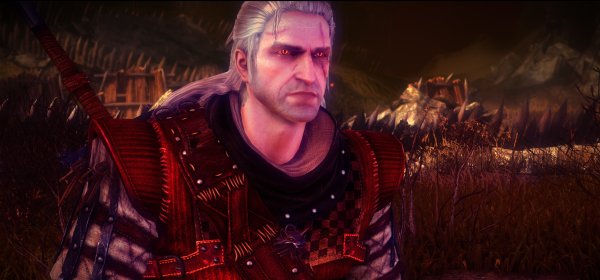
RPS: Which do you regard as the most important of these changes and why?
Badowski: All of them are somehow important. The forty plus technical improvements because they bring the game closer to being perfectly polished. The new tutorial could prove really valuable to those about to start their first playthrough – and we suspect this could be quite a large group, as good RPGs have a long lifecycle. On the other hand, those who wanted and planned to play the game again will, I think, really appreciate ‘Dark’ mode. Finally, there’s the ‘Arena’ – the single biggest added feature that should bring a lot of people enjoyment. Hmm, so which one wins? Probably ‘Arena’ mode!
RPS: Do you think the new tutorial will genuinely make the game more accessible for newbies? How does it do that?
Badowski: Absolutely – yes. It starts off by explaining very basic things, like quest completion, looting items, using the Inventory and quest log, and preparing potions (alchemy). After introducing all these elements, it leads players to an arena, where combat movements and tactics are explained step by step. Anyone who completes the tutorial should have no problem understanding how to play the game and figuring out the tactics to be against different kinds of opponents.
I mentioned that part of the new tutorial is set in an arena. This basically means that these two new modes are interconnected, though you don’t need to complete the tutorial to have fun in ‘Arena’ mode. While neither of these features link into the main story of the game, they themselves constitute a kind of short story. I feel I need to stress this, as I want to make sure that people don’t think of the tutorial and ‘Arena’ modes as simple elements stripped of any and all narrative. Both of these features incorporate story elements, including dialogue and voice–overs. All this was done in the name of providing more fun and promoting immersion in the game world.
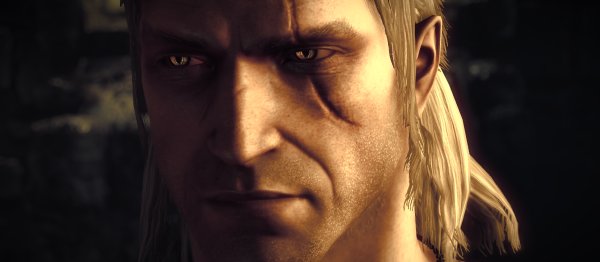
RPS: Do you have any other update and DLC plans to follow this update? Is there still more to do in improving The Witcher 2 experience?
Badowski: Of course we plan to do more. We always do! But nothing big is likely to come out this year. As we have already revealed, the Xbox 360 version will include some features that will also be added to the PC version simultaneously with the Xbox release. One of those will be a new, four–minute CGI intro by Oscar nominated and BAFTA winning animator Tomasz Bagiński, who was also responsible for the intro and outro of The Witcher 1. So, you can expect this to appear as an update somewhere during the first quarter of 2012 along with some other features. But I feel it’s far too early to talk about them – we’re still working them out.
RPS: What is CDP’s feeling towards DLC generally? Is it a positive trend within games? What do you see as the problems with it?
Badowski: We don’t see the idea as wrong, but we definitely don’t like to see gamers treated like dairy cows that are primed for milking. All too often, DLC is seen as an additional revenue opportunity. That’s not bad in itself – we’re not only in this industry to make games, we’re also here to do business. But we shouldn’t look at it exclusively from the latter angle, because that sometimes leads to decisions that could leave a bad taste in one’s mouth. If you only think about the business in terms of the money it can generate, I think you could come awfully close to forcing players to buy something additional in order to enjoy fully a game they just bought. And that’s simply not fair. Of course, it’s not always like that. There is interesting DLC out there, featuring a lot of new content (new areas, opponents, quests and so on), as well as DLC that is entirely optional, not needed to enjoy the game itself but valuable to the biggest fans. And it’s hard to blame game authors for charging for such things…
Anyway, our approach is different and relatively simple. All DLC for the PC version is and will remain FREE. That’s not likely to be the story for the Xbox version, because of certain Microsoft policies that need to be followed. But on PC, once you buy our game, you don’t need to worry about any additional costs – we will provide all updates, including those featuring new content, for free. I think it’s reasonable than when you buy our product, you can expect us to service it for you quite a long time after release, though less intensively as time goes by. Any payable DLC that appears is likely to be a more classic expansion pack along the lines of, say, Baldur’s Gate: Tales of the Sword Coast. But this is a purely theoretical discussion at this point, as we have yet to confirm or even plan any official expansion packs.
RPS: When should we expect more news about what is to follow The Witcher 2?
Badowski: Version 2.0 will be the main story for the next weeks and months, and this version and its features will remain most important for us this year. Early next year, as we near its completion, we’ll reveal more about the Xbox version. As we’ve said before, this will be an “adaptation” rather than a port, and you can expect some interesting additions and changes. Some people have speculated that we’re calling it an adaptation because we’re changing the game visually so much by having to downgrade it. I can assure that this is simply not the case. As we release more and more videos, it’ll become obvious that the game looks unbelievably good on Xbox. So, the Xbox 360 version will be the main story for the first quarter of 2012. Next year will also see us reveal some other news, but the exact timing will depend on how business issues play out – we need to close some deals first, and given that we’re a listed company, we’ll be obliged to reveal the information at specific times. Anyway, next year should be no less interesting than this year was in terms of the news we reveal.
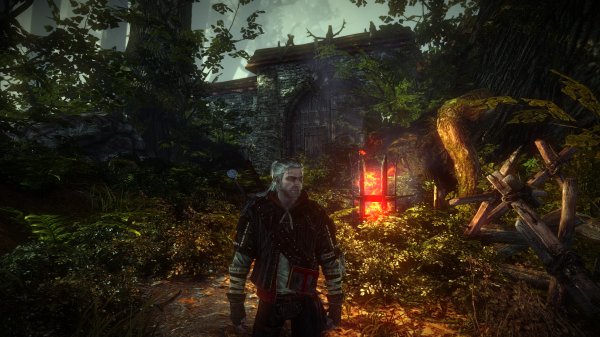
RPS: Will we have to wait another four years for The Witcher 3?
Badowski: Hmmm! What can I say? We’re gaining experience, our technology is becoming more and more complete every week, every month. And we’re definitely looking for ways to optimize and reduce development time. It’s no secret that we’re constantly hiring. Our team will soon number one hundred, of which almost 10% come from outside of Poland. (A small advert, if I may: game developers, go to wwww.thewitcher.com to look for job opportunities; we need passionate, experienced devs to strengthen our team. And don’t be scared – Poland is a great country, the people are warm and friendly, the girls are positively beautiful, and we’ll help you relocate… So apply today!). Given all that, our next game should take us less time to create overall. Of course, other factors will come into play. If, for example, we decide to produce an expansion, that may slow the process down a bit.
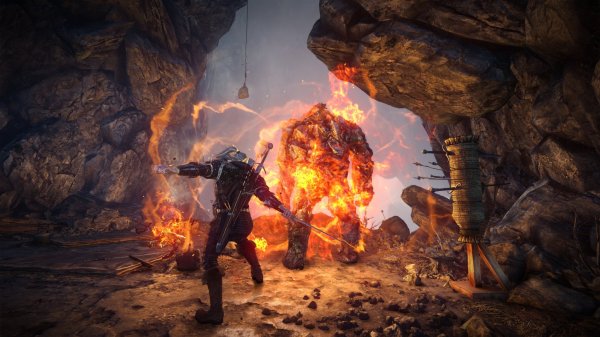
RPS: How do you feel about how The Witcher 2 has done since launch? Has its success been what CDP hoped for? What could have gone better?
Badowski: What could have gone better? As I mentioned, the release’s single biggest flaw were the online registration problems. Basically, we’ll never outsource this small but crucial element again. But generally… Hmm, we’re quite a young studio and relatively inexperienced, especially when you compare us to industry giants like Blizzard, BioWare or Valve, so we make mistakes. There’s certainly room for improvement if you look at our average scores. It’s a dream and a goal of ours to develop solid 90+ titles – and not from time to time, but consistently. We want to learn how to achieve this with every upcoming product without exception. Blizzard is probably closest to that. They make their games for a different audience, but they’re a good example quality–wise. We’re maybe different in that we would also like to be a leader in the quality of graphics and visuals, while Blizzard’s games look slightly dated upon release (and I know Blizzard fans will want to kill me for saying that. Don’t get me wrong – we love their games and half of our team is waiting for Diablo III (is that enough to save me?). In summary, we’d love to create games that will produce confidence in players. When they buy them, before they install them, players will already know that they can expect a very polished, top–class gaming experience. I know that may sound ambitious, but after The Witcher and now The Witcher 2, we’re actually quite close to achieving this goal, which we set for ourselves some ten years ago, when we did not have a single person on board who had developed a game or other software. We just need to be consistent and proceed in that direction step by step. Naturally, we must at all times remember our core values, first among which is our continued dedication and fairness to our fans and customers.
As far as how we feel about the sales results, The Witcher 2 is selling slightly better than expected (as of today, around one million units sold through worldwide). Our goal was to generate 30% better sales than The Witcher, and we’re achieving that. Given how the market has changed since The Witcher was released, I think this was both a realistic and ambitious goal. So we’re fully satisfied with what we’ve achieved. Of course, it would have been pleasant to see a nice surprise spike in the sales charts, but that was simply unrealistic. Anyway (and another advert, if I may :–), if there are any readers out there who have hesitated to buy the game, now’s a good time to jump in. You can get a very good deal on the game on Steam ($29.90) and the same will soon be true at GOG.com. Each legally purchased copy is important to us and will help us develop great games in the future! But don’t worry – you don’t have to buy the game for us to like you, though we do think that those who have pirated TW2 know no shame. Thanks for reading!
RPS: Thanks for your time.
http://www.rockpapershotgun.com/2011/09/27/which-witcher-is-the-witcher-2-2-0/
I love these guys, Everyone should buy this game! And if you already brought it an have a 360 preorder that version as well. Also make sure you have brought the witcher 1 and buy all your classic PC games on GOG.

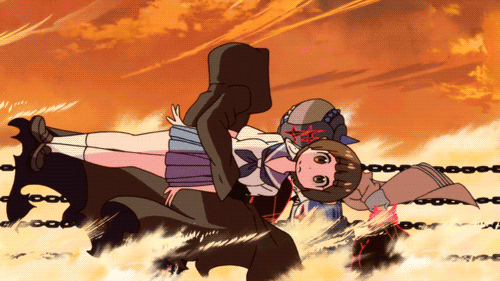 @TheVoxelman on twitter
@TheVoxelman on twitter
















